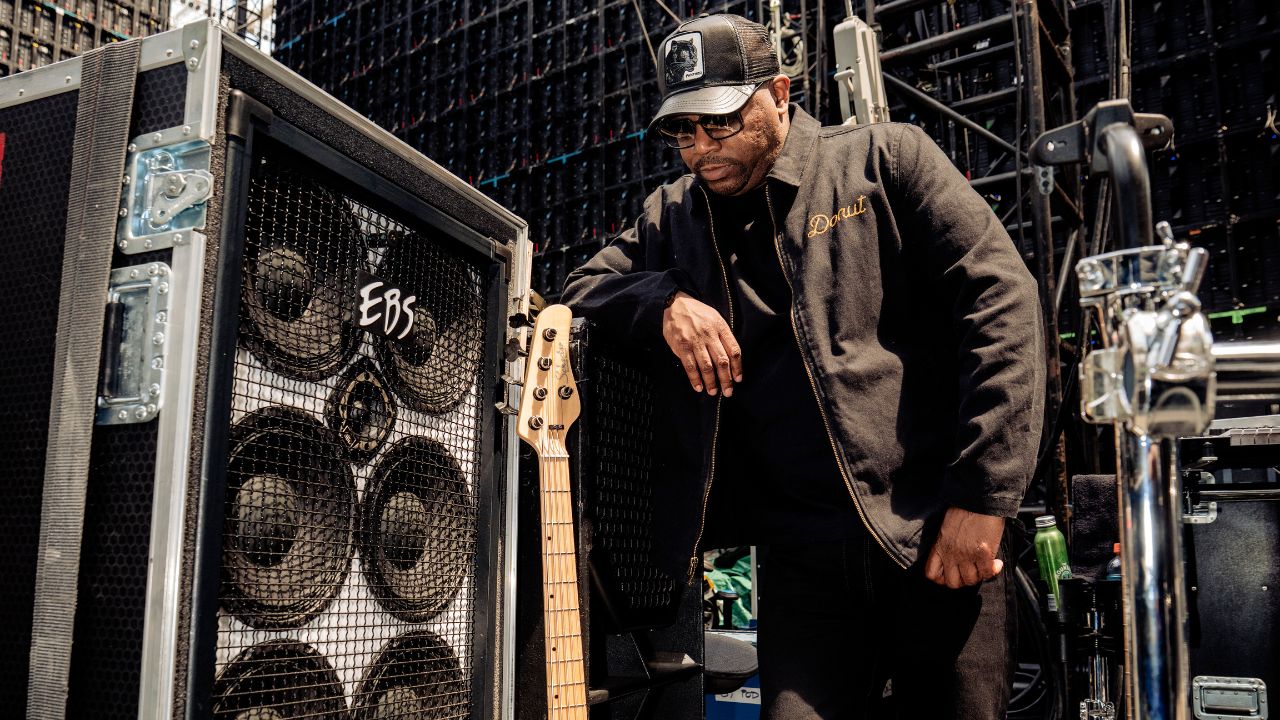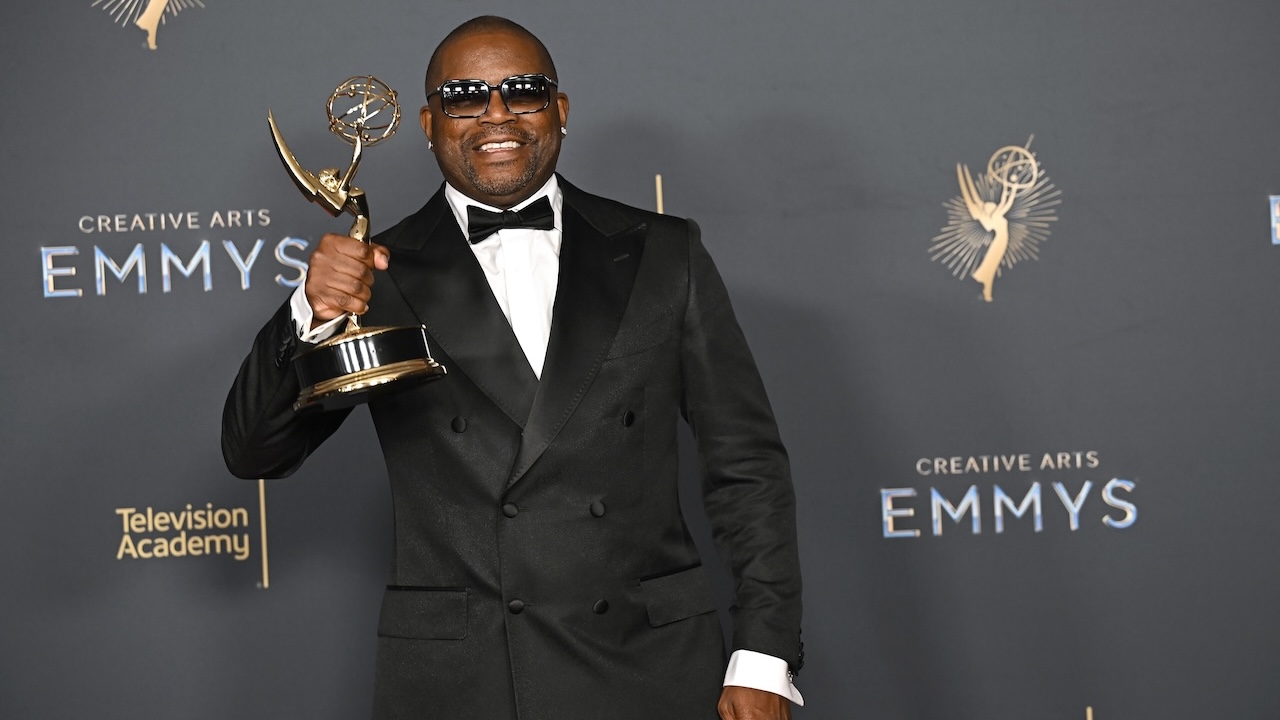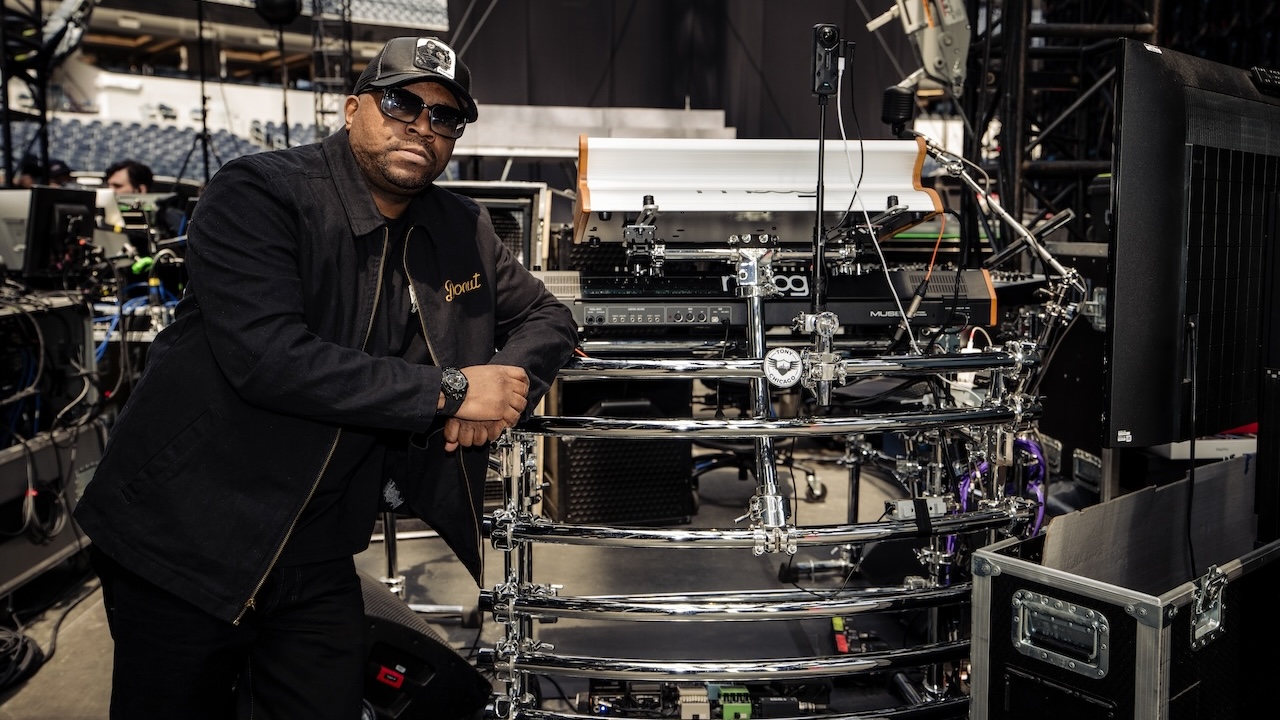“I’m the first bass player to ever MD a stadium tour like this. We make history every night”: As Musical Director for Kendrick Lamar, Tony Russell could be the greatest bass player you've never heard of
He’s played with Usher, Jamie Foxx, P. Diddy, and Jay-Z – is Tony ‘Chicago’ Russell the best-kept secret in bass?

“The biggest challenge with this gig is making sure that everything runs like clockwork,” says Tony Russell of his role as both bass player and MD of Kendrick Lamar’s live show. “I’m the first bass player to ever MD a stadium tour like this. It’s just the playback engineer and me, but we make history every night.”
On February 9th 2025, having taken home five Grammys a week prior, rapper Kendrick Lamar graced the world with the most-viewed halftime show in Super Bowl history, reaching an audience of 133.5 million.
It was the first time that a solo rapper had headlined the Super Bowl, and Lamar brought an elaborate show, full of dancers and special guests including Serena Williams, Samuel L. Jackson and SZA. For his part, Russell has been recognized with a Creative Arts Emmy Award for Outstanding Music Direction.
“Kendrick and his manager Dave Free are one of the best teams I’ve ever worked with,” Russell told Bass Player. “A lot of artists don’t get close to 10% of what they do in terms of detail. They’re both geniuses, and the Super Bowl show was the result of that partnership. The whole process was amazing.”
Having also manned the bass behind artists of the stature of Jay-Z, Usher and R Kelly, you’ve probably heard Russell’s bass playing more often than you might think. But in addition to being a fine bassist, he’s a prodigiously talented director with a keen ear for tasteful melodic fills.
“For me, it’s about staying true to the music, but still playing with an open mind. It’s not just about learning the set and memorizing the bass parts. It’s about finding a way to bring everything else to life.
“The bass player has to lock in with every part, so we know when the drums aren’t quite right, or if something’s off with the keys. The guitarist will usually go off and do their thing, but the bass player is at the center of everything.
All the latest guitar news, interviews, lessons, reviews, deals and more, direct to your inbox!
“It’s a big job, but some of the best MDs have been bass players. I’m thinking of people like Ricky Minor and Marcus Miller. Can you even imagine those Luther Vandross records without Marcus?”

When did you first start playing?
"I started out with gospel, RnB and hip-hop. I actually played on a lot of big gospel records in the '90s with people like John P. Kee, Smokie Norful, Yolanda Adams, Marvin Sapp. From there I went to R Kelly, Dave Hollister, TGT, Jamie Foxx, and Usher. I've just kept going!”
Which bass players influenced you?
“I listened to everybody, but my favorites when I was growing up were Anthony Jackson, Marcus and Nathan East. Nathan was on so many records. He was the guy who really set the bar for me.”
What’s your game plan for a typical show with Kendrick Lamar?
“My aim is to give Kendrick exactly what he’s looking for. That might be something really simple, but sometimes the less you play, the more space you can create. There are some moments in the show where you really don’t want to overplay, but you can always play less.
“Playing fast licks to try and impress people is like getting paid in Monopoly money; it’s all good while you’re playing the game, but when the game’s up that money doesn’t matter. That’s been a big lesson for me.”

How much freedom do you have when coming up with new ideas?
“I’ve been with Kendrick for 13 years, and my first job was to really understand what he was looking for. Any artist will want their music to translate in a certain kind of way, and then you can add whatever you need to add. It’s all about making their vision come to life.”
Were the demands of the Usher gig very different?
“With Kendrick it’s just the playback engineer and me. I play all the bass parts live and I’ve got all the other parts programmed in. I’m not onstage because there’s no room for me to be out front, but it still feels like a live stadium show.
“With Usher we had an all-star band that had been playing together for years. I was the new guy, but I understood the music, and I kind of feel like a natural adaptor in those kinds of situations.”

Presumably you have to be very adaptable to each situation you’ve found yourself in?
“It’s about getting comfortable with the environment you’re in and never forcing yourself on the gig. As soon as Usher gave me the green light, that’s when I knew I could start opening up some of those basslines.”
You also toured for many years with Jay-Z.
“I was with Jay-Z for seven years, and it was the first time that he’d ever toured with a band. He named us the Roc Boys, and it was a similar situation to the Usher gig. Once we had it locked in and he gave us the look, then we knew we had the green light to start adding a little more. He’d always be listening and looking to build new things into the set.”
Let’s talk about gear. Did your needs change when you made the switch from Usher to Kendrick Lamar?
“I don’t want to give Kendrick the same sound that I gave Usher. I might have used GK amps, but for this show I play through EBS. I have a signature Schecter bass, but I also have a Music Man, so I like to switch things up.
“One gig might be more hip-hop than RnB. Those genres may be closely related, but they’re also totally different. If it’s a gospel gig then I’d play a Fender Jazz. That’s my gospel sound. For a hip-hop gig, I’d take a Fender Precision with really old strings.”

Nick Wells was the Editor of Bass Guitar magazine from 2009 to 2011, before making strides into the world of Artist Relations with Sheldon Dingwall and Dingwall Guitars. He's also the producer of bass-centric documentaries, Walking the Changes and Beneath the Bassline, as well as Production Manager and Artist Liaison for ScottsBassLessons. In his free time, you'll find him jumping around his bedroom to Kool & The Gang while hammering the life out of his P-Bass.
You must confirm your public display name before commenting
Please logout and then login again, you will then be prompted to enter your display name.


